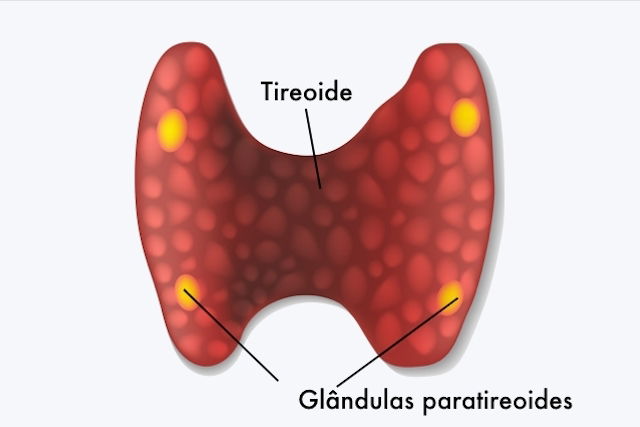The PTH blood test checks for levels of parathyroid hormone (PTH) in the blood. This is a hormone produced by the parathyroid glands that is metabolized by the liver and excreted in the kidneys. The PTH's main function is to regulate calcium levels in the body, as it triggers the release of calcium into the plasma to act directly on the bones, kidneys and intestines.
The PTH blood test may be ordered by your doctor when there are high or low levels of circulating calcium or if low bone density is suspected.
Although preparation is not necessary before the test, it is important to inform your doctor about any medication you take, especially sedatives as they can reduce the concentration of PTH in the blood and interfere with the test results. The blood sample should be collected in a laboratory setting by to prevent errors that can alter results.

What is PTH used for?
The PTH blood test is ordered by the doctor to investigate for any possible causes of increases or decreases in calcium levels in the blood. It is ordered hypo- or hyperparathyroidism is suspected, as these can conditions can cause an increase or decrease in circulating calcium levels, respectively.
Abnormal calcium levels can increase the risk for complications, which is why a PTH blood test can also be ordered to investigate for the underlying cause of kidney or heart failure. This test can also be ordered to monitor the development of these conditions.
How the test is done
This blood test does not require any preparation, however it is recommended that the blood sample is collected in the morning, as the PTH levels can vary throughout the day. The blood sample is sent to the laboratory, where it is processed and placed in a device where it is analyzed. The result is normally released approximately 24 hours after collection.
The activity of PTH is regulated by another hormone, calcitonin, which begins to be produced when calcium levels are very high. Calcitonin can reduce the production of PTH and stimulate the excretion of calcium in the urine.
What results mean
The reference values for PTH can vary from lab to lab, as different analysis techniques can be performed. In general, normal PTH levels are 12 to 65 pg/mL.
High PTH
PTH is considered to be high when levels are above 65 pg/mL. This is normally a sign of of hyperparathyroidism, especially if calcium levels in the blood are also high. In addition to hyperparathyroidism, PTH may be elevated in cases of chronic kidney disease, vitamin D deficiency and hypercalciuria.
Low PTH
PTH is considered to be low when levels are below 12 pg/ mL. This is usually a sign of hypoparathyroidism, especially if calcium levels are also low. Low or undetectable PTH may also be a sign of an autoimmune disease, incorrect development of the glands orit can occur following a surgical procedures.






























